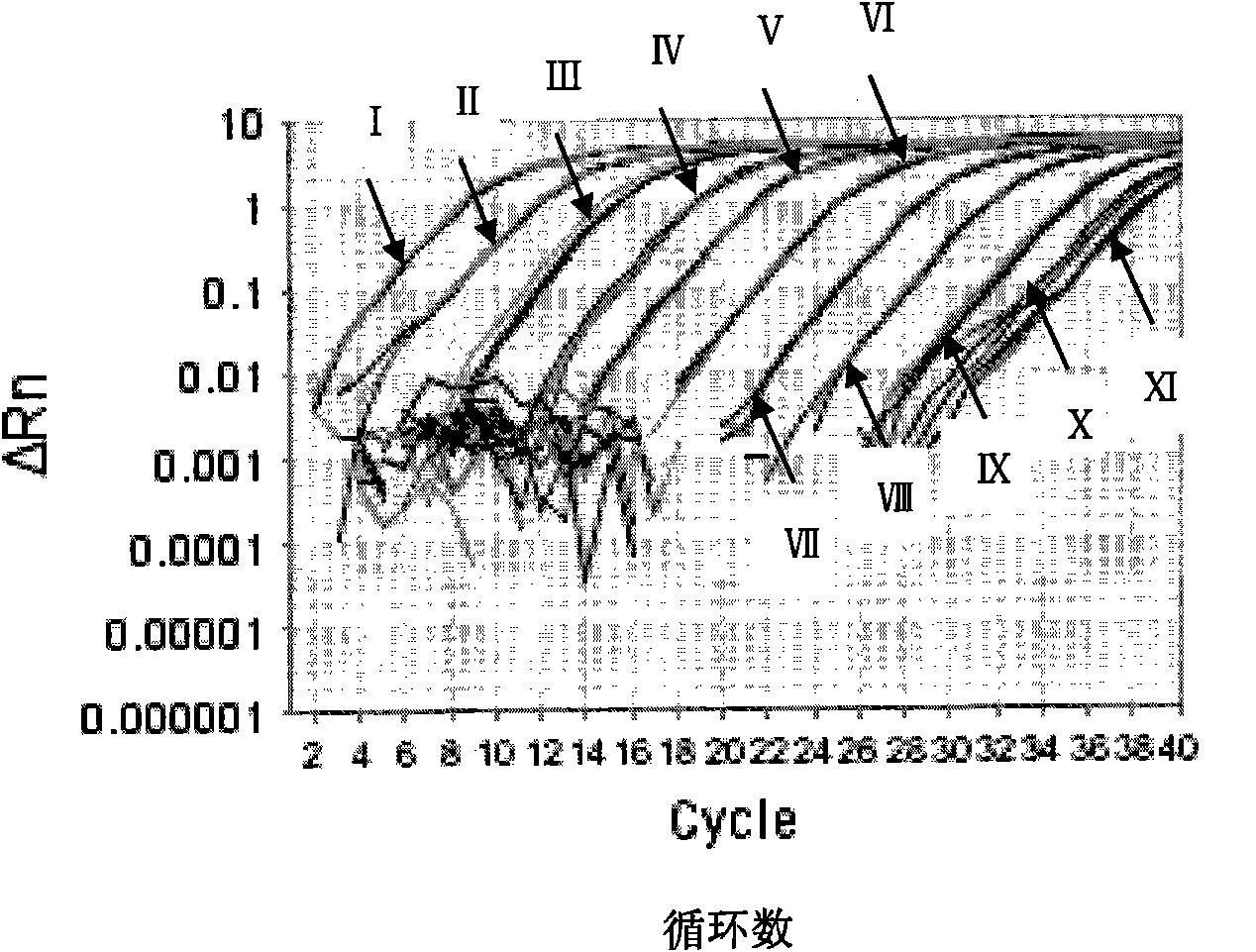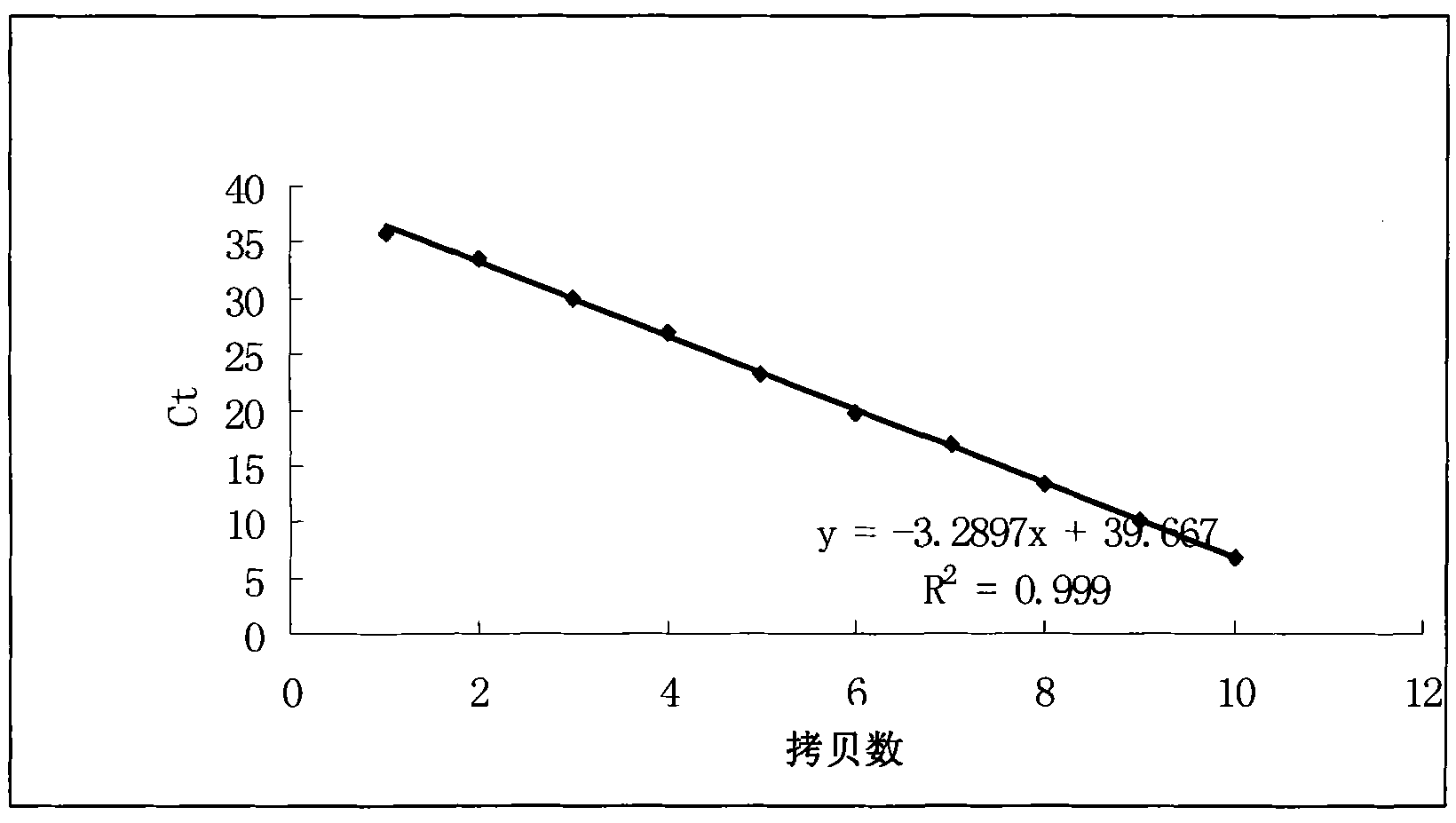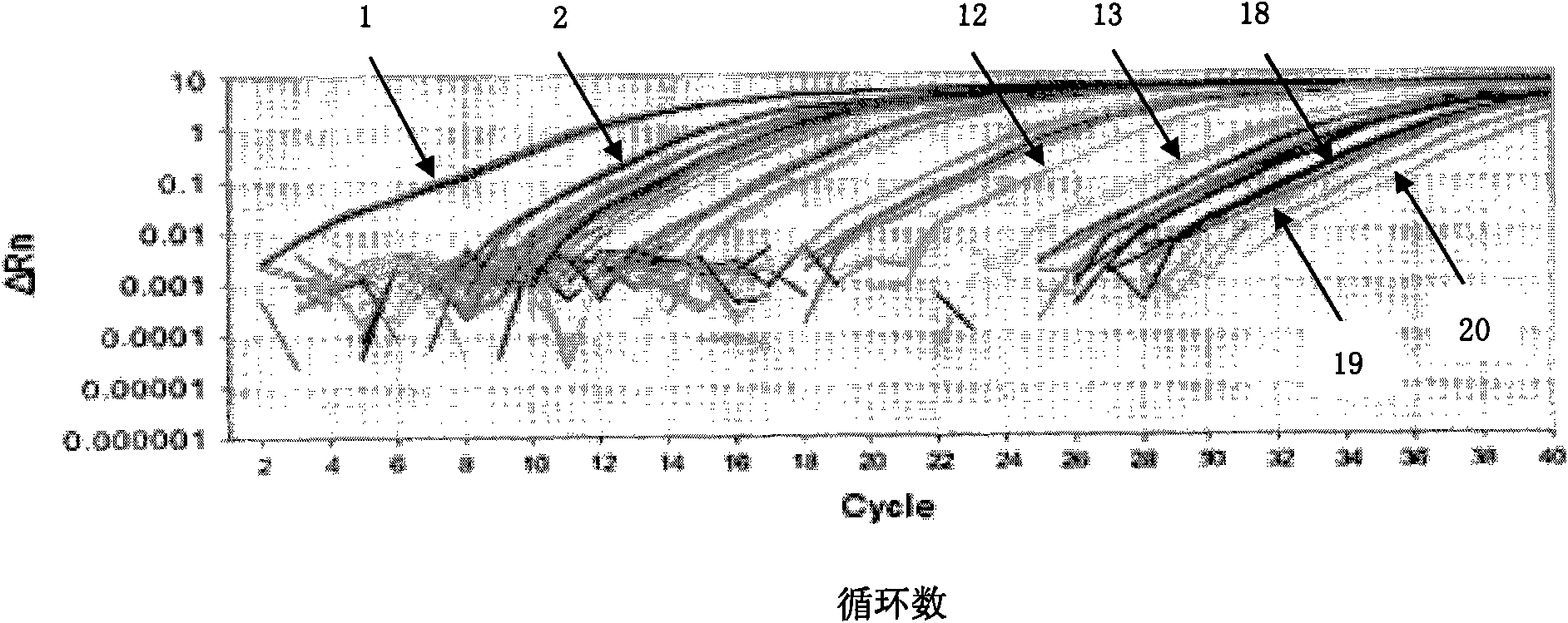Real-time fluorescence quantitative PCR detection method of campylobacter jejuni and kit
A real-time fluorescence quantitative, Campylobacter jejuni technology, applied in the determination/inspection of microorganisms, fluorescence/phosphorescence, biochemical equipment and methods, etc., to achieve the effects of improved detection efficiency, convenient sampling and high sensitivity
- Summary
- Abstract
- Description
- Claims
- Application Information
AI Technical Summary
Problems solved by technology
Method used
Image
Examples
Embodiment 1
[0039] Example 1. Design of primers and TaqMan probes for real-time fluorescent quantitative PCR detection of Campylobacter jejuni (CJ)
[0040] Referring to the complete genome sequence of Campylobacter jejuni subsp.jejuni NCTC 11168 strain (GeneBank: NC_002163) included in GenBank, the sequences of Campylobacter coli and Campylobacter fetalis, which are very similar to the genome structure of Campylobacter jejuni, were compared respectively, and flagellin was selected For the conserved region of the A(flaA) gene, TaqMan probes and primers were designed and synthesized using ABI Primer Express 3.0 real-time fluorescent quantitative PCR primer design software. The fluorescent labeling of the probe selects FAM (5' end) as the reporter luminescent group, and NFQ (3' end) as the quenching group. The sequence is as follows:
[0041] Upstream primer (CJ-1): 5'-AACCTGAGCCTGCAGAAACATTAT-3' (SEQ ID NO: 1 in the sequence listing);
[0042] Downstream primer (CJ-2): 5'-CCACAGGTTTTGCAA...
Embodiment 2
[0044] Embodiment 2, real-time fluorescent quantitative PCR detection of Campylobacter jejuni
[0045] 1. Establishment of standard curve
[0046] 1. Construction of pMD-CJ-flaA recombinant plasmid
[0047] 1.1 Cloning of the target gene-Campylobacter jejuni flagellin A (flaA) gene
[0048] 1.1.1 Extraction of Genomic DNA from Campylobacter jejuni
[0049] The following operations must be carried out in the P2 laboratory negative pressure biological safety cabinet in strict accordance with the requirements.
[0050] (1) Under aseptic conditions, take 100 mg of feces samples from patients with Campylobacter jejuni infectious diarrhea (or 100 mg of monkey or dog feces, or 100 mg of ileocecal contents of minipigs), put them into a 5 mL sterile centrifuge tube, and add 3 mL of sterile PBS (pH7.6), mix well, and let stand at room temperature for 5 minutes; draw the supernatant with a sterile syringe, filter through a microporous membrane (0.45 μm) to remove large bacteria and re...
Embodiment 3
[0085] Embodiment 3, Campylobacter jejuni probe method real-time fluorescent quantitative PCR detection kit
[0086] CJ TaqMan assay mix 50 μL (TaqMan probe concentration 250 nM, upstream and downstream primer concentrations 900 nM each), CJ TaqMan mix 500 μL, CJ positive quality control (pMD-CJ- flaA recombinant plasmid) 50 μL, CJ negative quality control product 50 μL and RNase-free water 500 μL were packaged together to obtain a real-time fluorescent quantitative PCR detection kit for Campylobacter jejuni.
[0087]
[0088]
PUM
 Login to View More
Login to View More Abstract
Description
Claims
Application Information
 Login to View More
Login to View More - R&D
- Intellectual Property
- Life Sciences
- Materials
- Tech Scout
- Unparalleled Data Quality
- Higher Quality Content
- 60% Fewer Hallucinations
Browse by: Latest US Patents, China's latest patents, Technical Efficacy Thesaurus, Application Domain, Technology Topic, Popular Technical Reports.
© 2025 PatSnap. All rights reserved.Legal|Privacy policy|Modern Slavery Act Transparency Statement|Sitemap|About US| Contact US: help@patsnap.com



